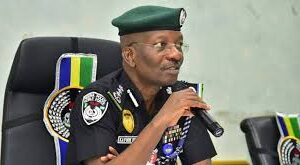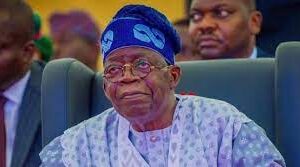By Musa Umar Bologi
Abuja
On July 13, 2015, President Muhammadu Buhari replaced the service chiefs he inherited from his predecessor, almost one and half months after taking over the mantle of leadership of the country.
He appointed Gen. Abayomi Gabriel Olonishakin, Chief of Defence Staff; Lt. Gen.Tukur Buratai, Chief of Army Staff, Admiral Ibok-Ete Ekwe Ibas, Chief of Naval Staff, Air Marshal Sadique Abubakar, Chief of Air Staff.
The change was to put in place capable and trusted men that will pursue the change agenda of the present administration, reposition the Nigerian military, and restore its reputation that was battered by the activities of its past leadership.
The military under the past leadership was engrossed in series of unprofessional conducts that grossly affected the reputation of the Nigerian military both within and outside the country.
However, things are gradually changing for the better, since new leadership came on board. To many Nigerians, the appointment of the new service chiefs has brought the desired change and improvement to many things that had gone wrong in the Nigerian Military, in recent the past.
Since the change of leadership in the armed forces services, the country’s military has changed significant in terms of professionalism and commitment to its constitutional duties.
Under the new leadership, the country has decimated and is at the verged of wiping out Boko Haram insurgency, to the admiration if its friends in the international community.
The military has also liberated many communities and open many roads that hitherto were under the control of the insurgents, while continuing to provide security on those roads.
The military has also rescued thousands of people captured by the insurgents. It has also provided free medical services to Internally Displaced People (IDP) in various camps in Borno, Adamawa, Yobe and Bauchi states.
To further ensure security of the citizen, the military under the new leadership, has engaged in operations in the North West (Operation Kunama), to wipe out armed bandits and cattle rustlers that terrorise the people of the region; and Operation Delta Safe, to fight the Niger Delta Avengers that are causing economic havoc in the Niger Delta region. These operations have recorded appreciable successes.
To enhance its reputation, the Nigerian Army took a bold step last month to punish some army officers for their unprofessional conduct in 2014 elections in Ekiti and Osun states.
Under the new leadership, the Nigerian Armed Forces has improved military equipment procurement procedures that had hitherto caused failures and poor accountability in the acquisition of heavy military weapons and platforms.
During a recent procurement seminar, the Chief of Defence Staff, Gen. reiterated that Nigerian Armed Forces willingness to remain a representative example of moral correctness in the management of public funds.
In terms of welfare, the new leadership has continued to ensure proper welfare for the officers and men of the armed forces, including those in the theater of war.
With these various achievements by the present service chiefs, Nigerian military have received commendations from both the President Buhari and his counterparts in Africa, Europe, America, Middle East, and other countries across the world.



